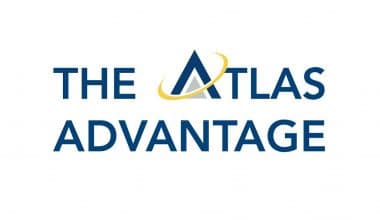Independent and general contractors alike can benefit from carrying general liability insurance in the construction industry. Hartford, Next, Chubb, and biBERK are some of the best companies that provide contractor liability insurance for the construction industry.
Best Contractor Insurance
A business owner’s policy combines general liability insurance with coverage for commercial property, making it an attractive option for many general contractors. If you operate in a state or locality that requires them, you may also need a builder’s risk policy and a workers’ compensation policy if you have employees.
The majority of states do not mandate that general contractors have liability insurance. On the other hand, some clients may need coverage as a part of the construction contract. Additionally, some local building codes require builders risk insurance. In addition, most states mandate that employers provide workers’ compensation insurance to their staff, and commercial auto insurance is a legal requirement for businesses that own vehicles.
Best Contractor Liability Insurance Companies
#1. Next
Workers’ compensation, business owner’s policy, and commercial vehicle insurance are some of the other types of coverage available to general contractors. This company’s general liability for contractors policy has high premiums for LLCs and sole proprietors.
General contractors can tailor their monthly premiums depending on their specific needs. Not only does a typical policy cover liability, property, equipment, vehicles, and employee benefits, but it also allows for the addition of coverages like professional liability and business interruption.
Buying multiple policies at once will save you 10%, and they offer additional discounts of up to 25%. Unfortunately, builder’s risk insurance is not something Next provides, and it is not universally available. People who work in the building industry usually need an insurance certificate that they can easily share and keep up to date with new insured parties at any time. Insurance policies for general contractors begin at $75 per month.
#2. The Hartford
Hartford’s Business Owners Policy (BOP) can be tailored to meet the specific needs of any construction company and includes builder’s risk insurance. In addition, they provide both physical and digital risk management services.
The Hartford is perfect for medium- to large-sized enterprises. You can modify a standard business owner’s policy to meet your specific needs by including riders for things like workers’ compensation and professional liability in addition to the standard coverage such as commercial property, general liability, and business income. The Hartford also provides coverage for builders’ risk.
Although Hartford does not reveal base rates for general contractor insurance, your actual premiums may vary widely based on factors like your company’s location, size, and the number of employees you have.
#3. Chubb
Chubb also provides construction firms with insurance policies designed for their unique needs. So, for example, the business’s professional liability insurance covers pollution liability, which means it covers lead and asbestos as well.
In addition, Chubb offers “occurrence-form” policies for general liability insurance. Workers’ compensation and builder’s risk insurance, along with the other standard policies for general contractors, are provided. Chubb’s small business portal provides online quotes, but not for all of these coverages, to companies with annual revenues of less than $2 million. Before purchasing a policy, larger small businesses or those in need of specialized coverage might need the assistance of an independent agent that Chubb has appointed.
#4. Farmers
General contractors can choose from a variety of policies from Farmers, including those for their buildings, their employees, their vehicles, their tools and equipment, and even their workers’ compensation. Each liability policy can have a claims limit of up to $5 million, and the business also provides umbrella insurance for an additional $10 million.
In addition, policyholders can gain access to the company’s loss prevention hub, MySafetyPoint, for no additional cost. Farmers may be appealing due to its high claim limits, but it does not provide professional liability insurance.
#5. biBERK
Like Nationwide, getting an online quote from them takes a while. Worker’s comp, professional liability, commercial auto, business owner’s policy, and commercial umbrella insurance are some of the additional policies that may be available from biBERK depending on your location in the country. Furthermore, it is financially secure enough to meet all of its commitments, including the settlement of claims. However, biBERK currently only provides general liability coverage in 27 states, so it may not be accessible to your business in your area.
Contractor Insurance
This insurance policy will protect both the company and its employees in the event of workplace accidents involving bodily harm or property damage. General liability insurance covers common risks in the building industry, such as client property damage and personal injury claims. Insurance for independent contractors can include a wide variety of policies designed to safeguard their finances. As a bare minimum, many freelancers should have general liability insurance. A business owner’s policy or commercial property insurance might also be necessary.
General liability insurance covers common risks in the building industry, such as client property damage and personal injury claims. Having this protection will shield your business from the high costs of litigation and open doors to more favorable leases and contracts.
Construction insurance is a type of property insurance that compensates the owner for losses sustained to a building or structure as a result of accidental or negligent actions or external causes.
What does Construction Insurance Covers?
Professional liability insurance, which is common in independent contractor insurance policies, covers your legal fees if a client sues you for financial loss due to your advice or negligence. The “errors and omissions” coverage protects against mistakes. In addition to medical payments and property damage, general liability insurance shields businesses from lawsuits alleging negligence.
What are the Types of Construction Insurance?
An insurance policy can cover all of the risks, losses, and legal obligations that arise during building projects. Different construction projects, locations, and policies will call for different insurance and coverage options. In most cases, a construction insurance policy will cover the following:
- General liability insurance: Carrying general liability insurance shields contractors and builders from claims made by third parties for injuries sustained or property damage during construction.
- Workers’ compensation insurance: This pays for medical care and lost wages for construction workers who sustain injuries while on the job.
- Builder’s risk: This insurance protects the buildings, tools, and supplies used in a building project from destruction, theft, and other perils.
- Professional liability insurance: This protects architects, engineers, and others in the construction industry from legal action due to design errors or other negligent acts.
- Commercial vehicle insurance can protect construction vehicles while they are in use.
There is an abundance of insurance firms that provide specialized policies for the building trade.
How Much Is Independent Contractor Insurance?
General liability insurance for contractors can cost as little as $11 per month, while professional liability insurance for the same business costs about $57 per month, on average. However, the price will vary based on the nature of your business, the extent of coverage you need, the size of your deductible, and the place where you do business. A comprehensive business owner’s policy may cost several thousand dollars per year.
Construction insurance premiums fluctuate based on several variables, such as the nature of the coverage, the magnitude of the project, the geographical location, the degree of risk, and the insurance provider. Construction insurance is a major outlay for most construction businesses; annual premiums can be anywhere from tens of thousands to hundreds of thousands of dollars, depending on the scope and level of risk associated with a given project.
However, lowering your coverage limits or increasing your deductible can reduce your premiums but leave you financially vulnerable. If you want to get the best deal on insurance for your construction project, it is best to consult with an experienced agent. They will be able to help you figure out what kind of policy you need and how much coverage you need.
Best Insurance for Independent Contractors
Freelancers and contractors should carry liability insurance at the very least. PLI, or professional liability insurance (E&O), can cover legal fees if you are sued for negligent service, bad advice, or betraying a client’s trust. Many companies that employ 1099 workers also require general liability insurance in case a customer suffers harm as a result of one of your goods or services or alleges that your business’s actions have damaged their property or reputation.
A business owner’s policy (BOP) is a comprehensive insurance package that often includes coverage for business interruption, along with general liability and commercial property. Nevertheless, not everyone requires such extensive protection.
#1. Next
Next provides liability coverage for independent contractors despite their financial situation by offering same-day applications, low premiums, and discounts. Professional liability insurance for low-risk sole proprietors costs $220 annually and general liability insurance costs $11 monthly. In addition, Next offers several discounts that can reduce your premiums by as much as 25%, such as a discount of 10% when you purchase a second policy at the same time.
A business owner’s policy, general liability insurance, and professional liability insurance are all available from Next, but the company does not provide as many optional endorsements as its competitors.
#2. biBERK
The financially stable Berkshire Hathaway Group, with an AM Best rating of A++, owns biBERK, so it will pay claims.
Professional liability insurance from biBERK starts at only about $300 per year, which is a great value. With just a few quick questions, biBERK can provide a quote and an application for instant coverage. Customer reviews about the company on third-party sites are excellent
BiBERK can customize a business owner’s policy for your company’s professional liability, general liability, and cyber liability needs. You can choose from dozens of recommendations. While biBERK streamlines the process of retrieving your insurance policy’s proof of coverage, adding an insured may increase your premium.
Professional liability insurance rates at biBERK are among the most affordable in the industry, thanks to the group’s parent company, Berkshire Hathaway.
#3. Chubb
Chubb’s general liability insurance comes in two levels: occurrence and claims-made, so you can pick the one that works best for your company.
Chubb does not provide a simple online application process. To begin your policy, you will need to speak with an agent, who should be consulted regardless of whether your coverage needs are typical or unusual.
AM Best gives Chubb an A++ (superior) for financial strength, and the company also has excellent ratings in customer satisfaction. Given the variety of options available, Chubb is an excellent choice for a business owner’s policy (BOP).
#4. Thimble
Thimble gives you general liability insurance whenever you need it for as little as $5 an hour or $17 a month. This is perfect for certain kinds of insurance, such as event-based photography insurance. Additional coverages, such as cyber insurance and business equipment insurance, can be added to the Thimble package for freelancers who want comprehensive protection.
Thimble’s coverage is “occurrence-form,” meaning that as long as the incident giving rise to the claim happened during the policy’s effective period, you are protected. Thimble’s customizable plans and occurrence-based liability protections are ideal for freelancers who work events, require seasonal coverage, or are in search of insurance for a contract that will last a matter of weeks or months.
#5. Hiscox
Hiscox provides services to freelancers by providing flexible payment plans, claims specialists who are familiar with their industry, and specialized coverage options.
This independent contractor liability insurance company provides both errors and omissions (E&O) and malpractice insurance, serving a wide range of professionals. It has high aggregate limits in comparison to similar policies, and it allows you to purchase additional layers of protection in the form of umbrella policies through CyberPolicy. Contractors can also get insurance from the company for things like cyber liability, general liability, and business owner’s policies if they need them.
Online quote and purchase options are available alongside phone access to licensed insurance agents. When you become a policyholder, you will have the option to do things like manage your policy and file claims online. AM Best has given Hiscox their highest possible rating of A+ (Excellent), indicating that they are extremely trustworthy when it comes to making good on insurance claims.
Does a Contractor Need Commercial Auto Insurance?
The use of a personal vehicle for business purposes, such as traveling to and from a job site or transporting materials, necessitates a commercial auto policy. Your personal auto insurance will not cover use for business.
What Insurance do you need for the 1099?
In most cases, workers who are paid through 1099 contracts are required to have general liability insurance. This type of insurance shields you from liability if you are accused of causing physical harm to another person or damaging their property.
Why do I Protect Myself as an Independent Contractor?
If you protect yourself and your business with the appropriate independent contractor’s liability insurance, you will not have to worry about being sued, having accidents, or damaging other people’s property, all of which have the potential to be financially catastrophic for your company.
How Is General Liability Calculated?
The nature and size of the business, the sector in which it operates, the level of risk its operations pose, and the scope of coverage required all affect the price of a company’s general liability insurance policy.
Do Independent Contractors need Cyber Insurance?
Cyber insurance is essential for freelancers to safeguard their clients and their company from online threats. Information technology risks, like hacking and data breaches, can be avoided with cyber insurance for businesses and freelancers.
First-party cyber liability insurance typically excludes independent contractors from coverage because it applies only to attacks on the network of the policyholder. However, independent contractors may need to carry third-party cyber liability insurance in case they face legal action from clients.
What Are Owners Contractors Protective Insurance?
Once a contractor buys OCP coverage, the policy protects the project owner or general contractor who is named on the policy. If the contractor causes bodily injury or property damage during the project, the policy will cover the costs incurred by the named insured.
What does the ProAct Mean for Independent Contractors?
The PRO Act would reclassify some workers who are currently considered independent contractors as employees for federal labor law, making them eligible for unionization.
Conclusion
Most states require anyone working independently to carry at least the bare minimum of liability insurance. Additionally, many jurisdictions demand that self-employed individuals who practice licensed professions like law or medicine carry professional liability insurance. Even if it is not legally mandated in your line of work, a sole proprietor should have insurance to safeguard their assets. You can protect your home and business from potential financial ruin in the event of a lawsuit by purchasing liability insurance.
- General Contractor Insurance: Coverage, Cost & More
- BUSINESS INSURANCE FOR CONTRACTORS: Cost, Requirements & Best Services
- BIBERK BUSINESS INSURANCE REVIEW
- Cheap Small Business Insurance: Best of 2023
- EQUIPMENT INSURANCE: What Is It & What Does It Cover?






